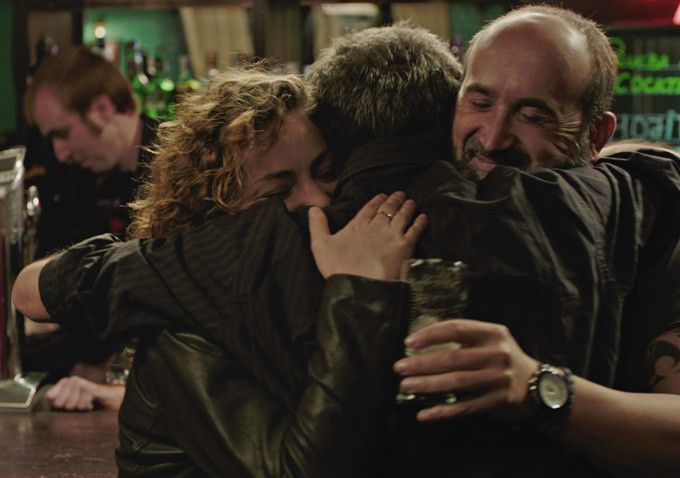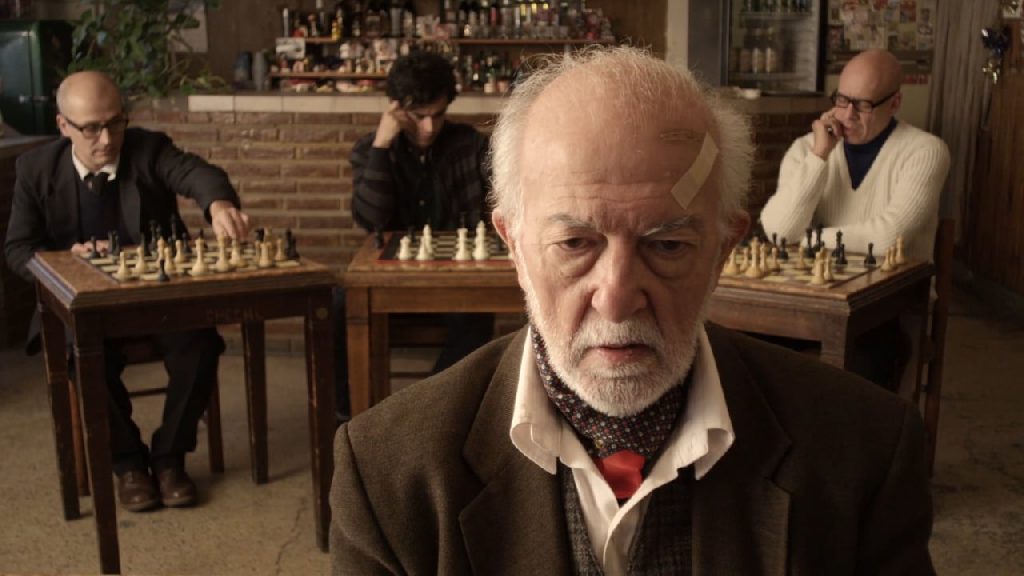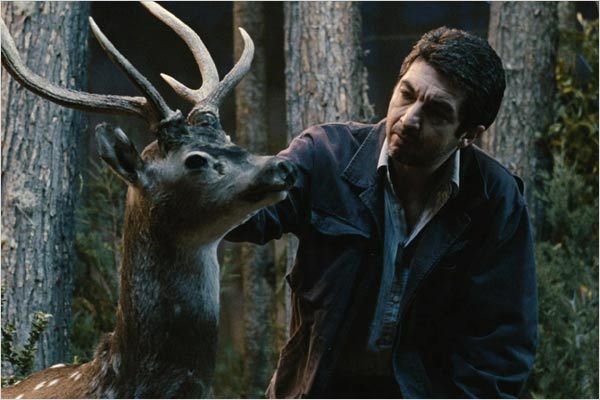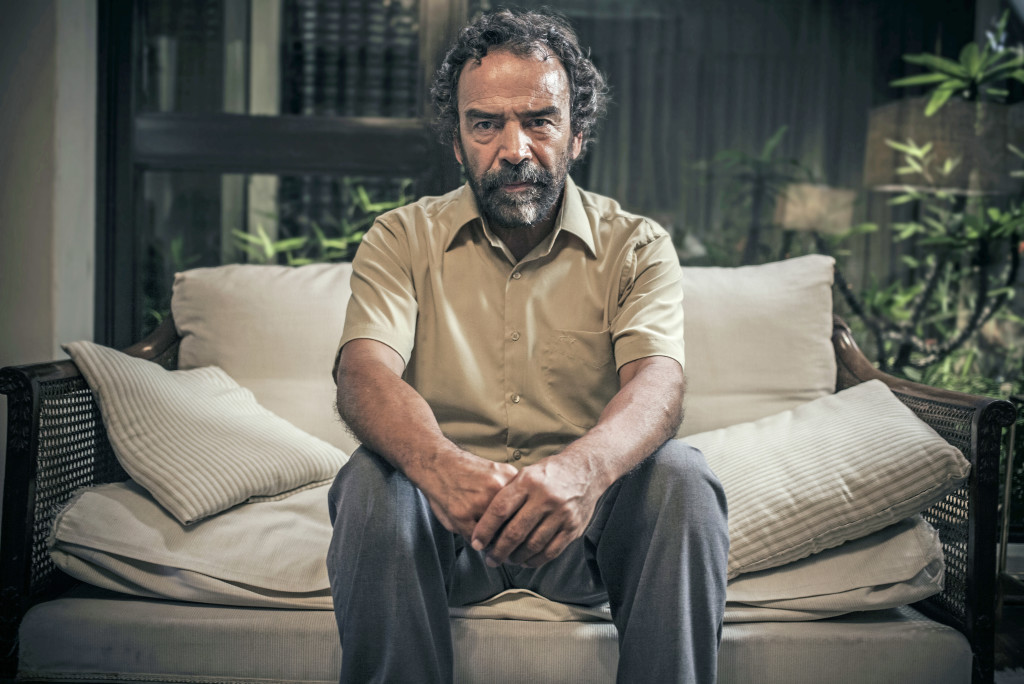
This may be the best movie I’ve seen this year. In the deeply emotionally affecting and humane Spanish film Truman, Tomás (Javier Cámara) leaves Montreal to pay a surprise four-day visit to his longtime friend Julián (Ricardo Darin) in Madrid. Julián has been battling cancer and has just received a very grim prognosis. Julián has chosen to forgo further treatment, and his cousin and caregiver Paula (Dolores Fonzi) is hoping that Tomás can talk Julián out of his decision.
Julián is a roguish bon vivant, although now hobbled by illness. Tomás is a responsible family man. As the four day visit unfolds, Tomás tags along as Julián cavalierly settles his affairs. Because of the circumstances, even the most routine activity is heavily charged with emotion. Julián, who has always been a wild card, is now a tinderbox always on the verge of erupting into some socially inappropriate gesture. Julián is particularly focused on arranging for adoption of his beloved and ponderous dog Truman.
Julián is a wiseacre, but his reaction to a moment of kindness from an very unexpected source is heartbreaking. Julián goes to say goodbye to his son, and then the learn a fact afterward that make this encounter exponentially more poignant. Truman has an especially sly ending – the granting of one last favor, however inconvenient.

The Argentine actor Darin is one of my favorite screen actors: Nine Queens, The Secret in their Eyes, Carancho, The Aura. As a man living under a death sentence, Julián has adopted a bemused fatalism, but is ready to burst into rage or despair at any moment, and Darin captures that perfectly.
I was blown away by Javier Cámara’s unforgettable performance, at once creepy and heartbreaking, in the Pedro Almodovar drama Talk to Her. Cámara is a master of the reaction, and his Tomás stoically serves as the loyal wing man to a friend with hair trigger unpredictability, often in a state of cringe.
The Argentine actress Dolores Fonzi (The Aura) is excellent as Paula, whose caregiver fatigue finally explodes.
Packed with bittersweet emotions, Truman is never maudlin. The Spanish director Cesc Gay, who co-wrote Truman, has created a gentle and insightful exploration into how people can say goodbye. There’s not a single misstep or hint of inauthenticity. Again, Truman is one of the best films of the year.
Truman had a brief US theatrical run. It’s now streaming on Amazon, iTunes, Vudu, YouTube and Google Play.
(Note: The crappy trailer below fails to capture all the humor and deep emotion in this film.)








